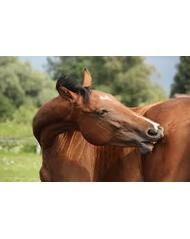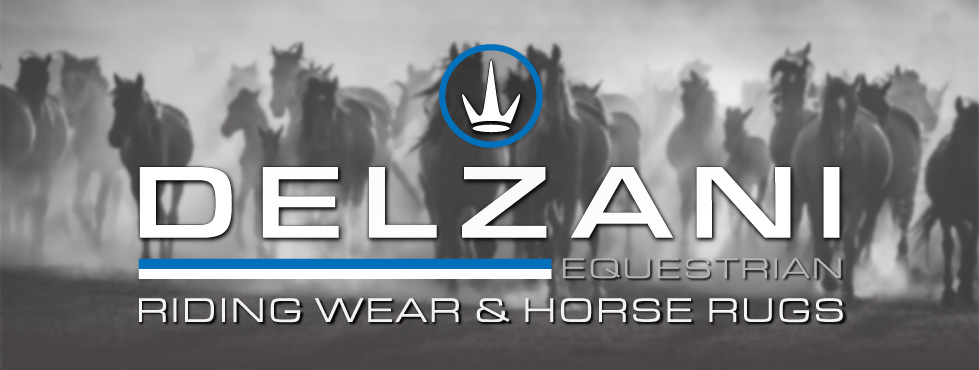Managing and Preventing Queensland Itch in Horses

Banish the Itch: Managing and Preventing Queensland Itch in Horses
If you are a horse owner, you know all too well how annoying it is when your horse has a hypersensitivity to bites and sand flies (Collicoides midges).
Although the midge bite is an annoyance, some horses become sensitive to it and will rub themselves so much that they harm their skin and ruin their horse rugs in the process. Queensland itch, sometimes referred to as sweet itch or summer itch, is a typical allergic reaction to the saliva of the midge, that drives horses crazy with itching. The causes of Queensland itch, practical management techniques, and how utilising repellents can boost your horse's defense are all covered in this article.
Understanding Queensland Itch
Queensland itch is an allergic reaction primarily caused by the bites of Culicoides midges, commonly known as sandflies or biting midges. These tiny insects can be found in various regions in Queensland, Australia. The midges feed on the horse's blood and, in the process, inject saliva containing allergenic proteins. Horses sensitive to these proteins develop an allergic response, leading to intense itching, and hair loss, sometimes causing skin lesions and open sores.
Identifying Symptoms
To effectively manage Queensland itch, it's crucial to recognise the symptoms early on. Typical signs include excessive scratching, rubbing against objects, hair loss, crusty or scaly skin, and the formation of sores or open wounds. Identifying these symptoms promptly allows for timely intervention and relief for your horse.
Keeping midges at bay... management Strategies:
Midges prefer to breed on moist land and close to rivers, lakes, and other bodies of standing water, sensitive horses kept near these areas are more susceptible to be harmed.Create a horse-friendly environment by reducing the presence of Culicoides midges. Implement measures such as:
- Stabling horses during peak insect activity periods, typically dawn and dusk.
- Installing fine-mesh screens or protective rugs to shield horses from midges.
- Removing standing water sources that serve as breeding grounds for midges.
There are various topical treatments that can alleviate itch and soothe the irritation experienced by your horse, such as:
- Medicated shampoos and rinses that are specifically formulated to combat Queensland itch.
- Calming creams or lotions with ingredients like aloe vera or oatmeal to soothe irritated skin.
The following link has a full range of products to a
How Horse Rugs Provide Essential Protection
Horse rugs serve as a valuable tool in preventing Queensland itch, a troublesome condition caused by Culicoides midges. Here are four key reasons why horse rugs are essential in protecting your equine companion:
- Physical Barrier: Horse rugs act as a physical barrier, preventing midges from directly accessing the horse's skin and reducing the risk of bites.
- UV Protection: Quality rugs offer protection against harmful UV rays, shielding the horse's sensitive skin and reducing the risk of sunburn and further irritation.
- Repellent Integration: Some horse rugs come with built-in insect repellents or the option to add them, providing an additional layer of defense against midges.
- Comfort and Relief: Horse rugs offer relief from itching by minimizing direct contact between the horse's skin and external irritants, helping to alleviate Queensland itch symptoms
By investing in a well-fitted horse rug, you can provide your horse with the necessary protection to combat Queensland itch, ensuring their comfort and well-being.
Link here for horse rugs: Horse Rugs
Nutritional Support:
Maintaining a balanced diet is essential for overall equine health. Supplements containing omega-3 fatty acids, such as flaxseed or fish oil, can help reduce inflammation and strengthen the horse's immune response, potentially reducing the severity of Queensland itch symptoms.
Repellents as Defense
Taking your horse's defense to the next level involves using effective repellents to deter Culicoides midges. Consider the following options:
- Fly sheets and masks: Covering your horse with specially designed fly sheets and masks provides physical protection, preventing midges from directly contacting the skin.
- Insect repellent sprays: Choose equine-friendly insect repellents that contain ingredients like pyrethrin, permethrin, or citronella. Apply the spray to exposed areas of your horse's body to repel midges.
Both horses and their owners may find Queensland itch to be a stressful ailment. You may relieve and soothe your horse by being aware of the reasons for Queensland itch and putting sensible management techniques into practice. Additionally, adding repellents to your routine for taking care of horses can provide the next line of defense against the Culicoides midges that cause itching. Remember that a veterinarian can offer specific guidance and guarantee the finest care for your horse's particular needs.
By following these strategies and using quality products like Delzani's range of equine care solutions, you can help keep Queensland itch at bay, allowing your horse to enjoy a more comfortable and itch-free life.






